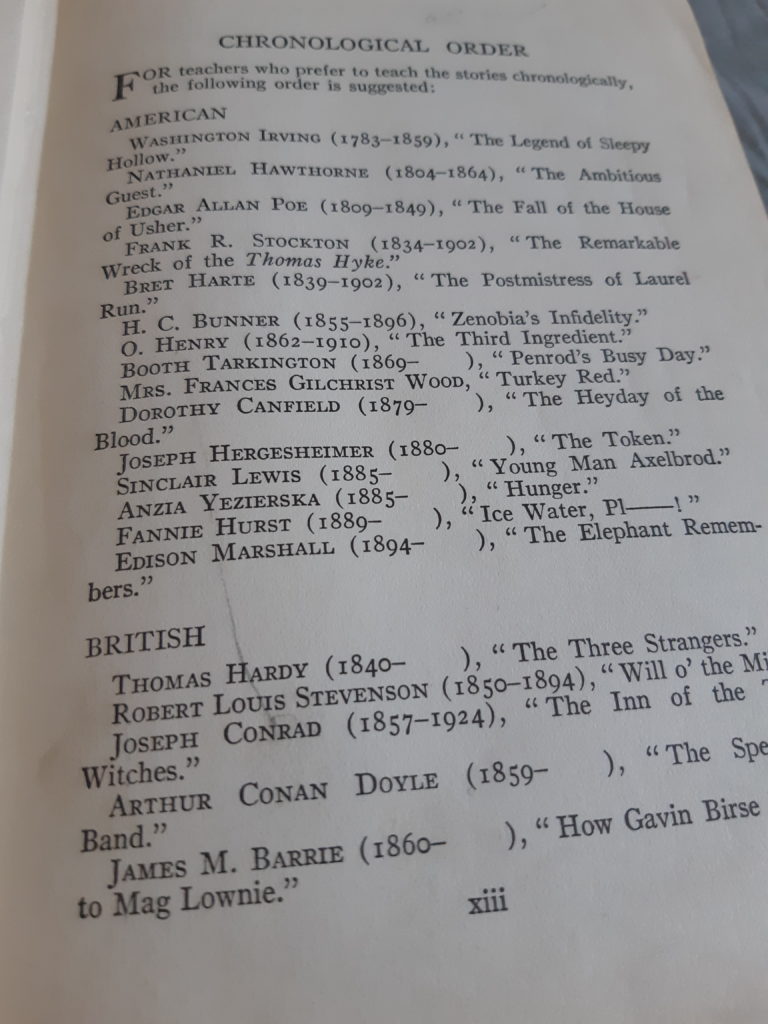This was one of a couple short story anthologies that made their way from my Dede’s library to my parents’ house to my own bookshelves, for the simple reason that I’m a sucker for old books. This, especially, is a piece of family history to hold in my hands, with my Dede’s name and old Kensington address in neat, old-fashioned cursive in blue ink right on the flyleaf. I finally sat down to read it after a long stint with Swedish, when I could only muster enough brain for 1) something in English and 2) something short.
In a serendipitous turn of events, while I was reading this collection my sambo had taken to devouring old pulp magazines from the extensive collection at the Internet Archive—publications that were contemporaneous with this collection, and about which the editor (Harry Christian Schweikert, a prodigious anthologizer it seems) had this to say:
The pupils who will use this book are already confirmed short story readers, many of them, unfortunately, addicts of the popular and more sensational magazines. To condemn these magazines is worse than useless, especially if the teacher adopts a “high-brow” attitude. Pupils like nothing better than to shock the teacher. The situation is often complicated by the fact that many of these journals often contain good stories. Perhaps the best way is to ignore the magazines entirely at first. If the teacher is successful in stimulating genuine interest in the discussion of stories, the pupils will themselves dispose of the trashy magazines.
The second entertaining morsel about this collection is seeing how many of its featured authors are referred to in the present tense and whose death dates had not yet come to pass.

Since it’s a textbook, each story comes with an author biography, though as whole they’re more editorializing and nakedly subjective than anything I would have read in an English textbook in school. Discussion questions and “subjects for composition” also accompany each story, which make for a fun little peek into the English teaching of yesteryear. The same can be said for the actual selection of stories, a snapshot of prevailing tastes of the time. Several of the authors chosen were already well-established giants in 1925 (O. Henry, Anton Chekhov, Alexandre Dumas); others are familiar household names today that were still in their productive years (the above Sinclair Lewis et al.); still others were popular at the time of publication but later faded into obscurity (Joseph Hergesheimer or Frances Gilchrist Wood).
The vast majority of the stories were new to me, even if I knew around half of the authors. Is this another sign of changing times? Or am I just woefully ill-read when it comes to short stories? Hard to say. But the best part is how many new authors—especially women writing in the first half of the twentieth century—I can look up and enjoy for the first time.


One thought on “Short Stories, H. C. Schweikert”